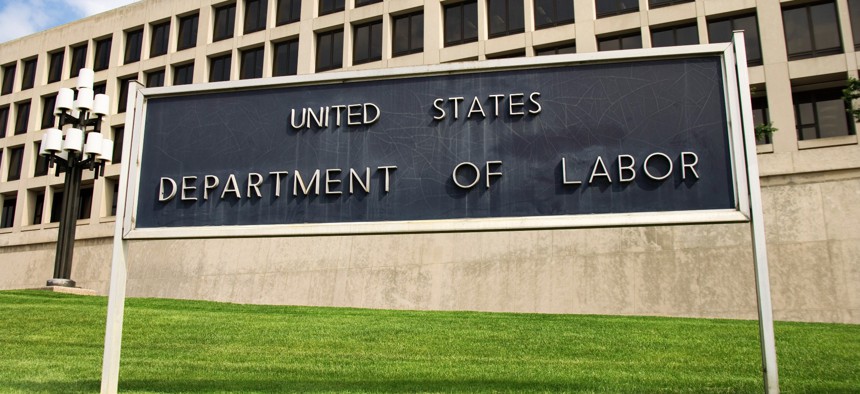Over $45 billion in unemployment paid to fraudsters during pandemic, watchdog says

Getty Images
The Labor Department's Office of Inspector General says that the department needs to do more to obtain state-level unemployment insurance data to help with antifraud efforts.
The Labor Department's internal watchdog is out with new estimates for the amount of jobless aid paid out to fraudsters during the pandemic. The latest total: $45.6 billion from March 2020 to April 2022.
The final tally could be higher. The latest update from the Labor Department's Office of Inspector General only focuses on certain areas of fraud, and it doesn't include benefits paid out to federal prisoners, an area the watchdog has previously reported as a problem, a newly released memo states.
States also paid jobless aid to individual people in multiple states, to dead people and to claimants marked as suspicious because of the use of email accounts that hide personal information about the user's identity, making it easier to obtain aid fraudulently.
The watchdog says that so far, the Labor Department's Employment and Training Administration "has not taken sufficient action" to implement inspector general recommendations dating back to Feb. 2021 "that would help mitigate and prevent even more potential fraudulent payments from occurring."
Those recommendations, which the Labor Department concurred with when they were made, include establishing controls alongside states to mitigate fraud and to work with Congress on putting requirements for state workforce agencies to cross-match data to prevent problems into law.
"ETA's lack of sufficient action significantly increases the risk of even more UI payments to ineligible claimants," the OIG memo states.
The unemployment program is delivered by states and territories with more than 50 unique systems, many of which are decades old, making it difficult for states to respond to surges in claims. Funding and staffing shortages are also issues.
There are ongoing efforts at the White House focused on anti-fraud controls, including the appointment of a chief prosecutor for COVID-19 fraud. President Joe Biden also promised an executive order on identity theft at his State of the Union address in March, although that has yet to materialize.
On Thursday, the Labor Department inspector general also released an update about the impact of its investigations into fraud. It says that so far, over 1,000 people have been charged with crimes related to unemployment fraud because of its investigations.
In a department response included in the memo, Acting Assistant Secretary Brent Parton listed the antifraud work the department has done so far, including issuing fraud-focused grants to states and offering tech assistance to states. Congress gave the department $2 billion in the American Rescue Plan Act for unemployment to use on fraud and access issues, which the department has been using for grants, tech pilots and direct assistance to states.
He also pointed to ongoing pilot efforts at the department to see if the General Services Administration's identity proofing service, Login.gov, could be used across the system to help verify people claiming jobless aid.
The inspector general also remains unhappy with the department's response to a sore spot it's flagged before – delays in getting the state-level data to do audits.
"The delays in providing the OIG accurate, timely, and ongoing access to UI data led to interruptions in identifying potentially fraudulent payments much earlier in the pandemic," the memo states.
The department is now considering updating regulations permanently, but the timeline for that update would leave a gap of over a year where the inspector general wouldn't have access, the memo says.
Parton called the memo a "mischaracterization of the department's efforts to provide the OIG access to state UI data" in his response, saying the department "continues to pursue ongoing efforts in good faith to provide access." He also writes that the inspector general can use their own authority to ask states for data.
The latest memo recommends immediate actions the watchdog said would help ensure it gets data on the unemployment system.



